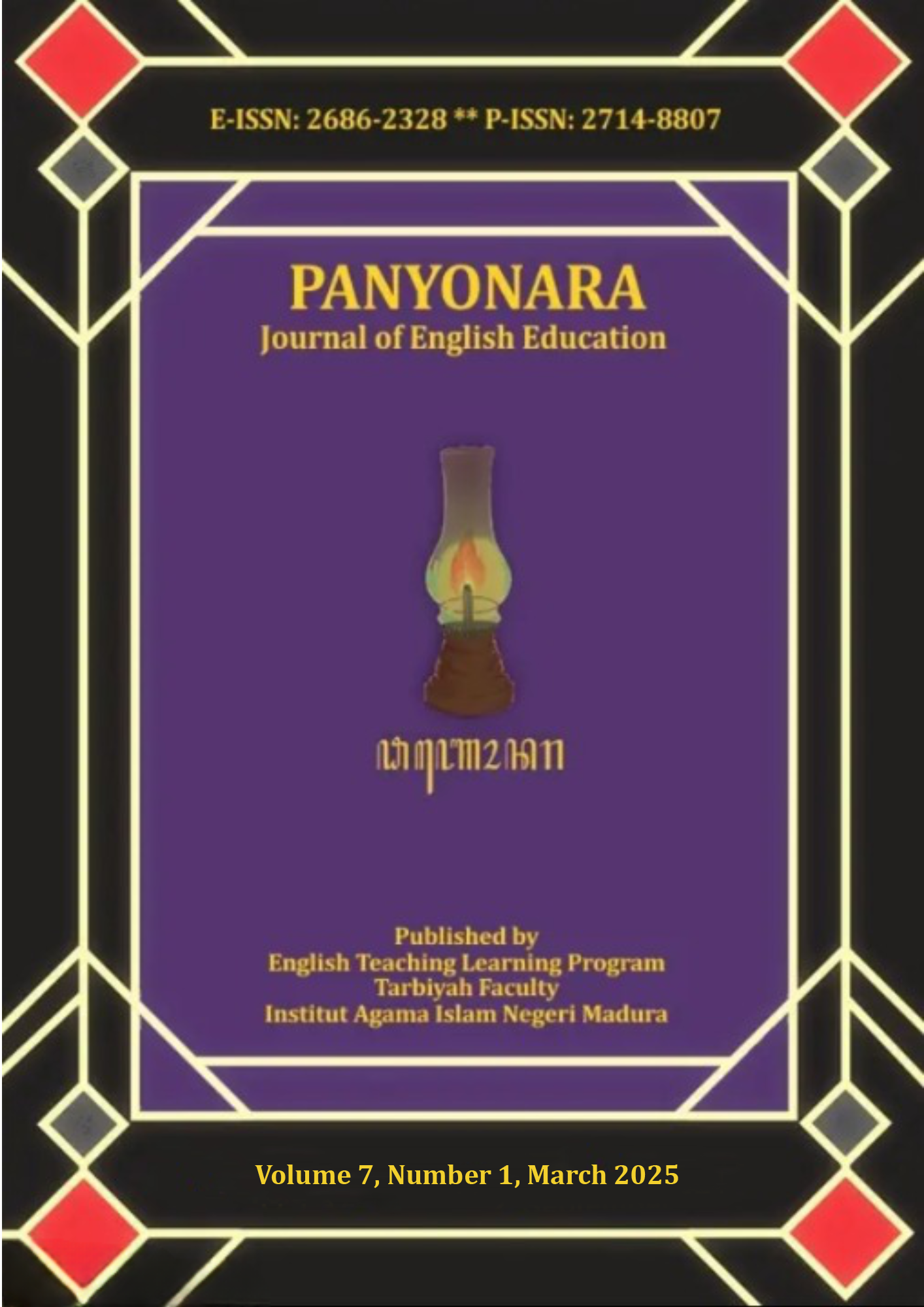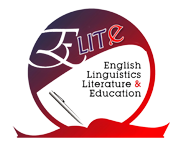Factors Influencing Student Motivation in English for Specific Purposes at Eastern Indonesian Universities
 Abstract views: 55
,
Abstract views: 55
,
 pdf downloads: 38
pdf downloads: 38
Abstract
Motivation to learn English is essential for university students worldwide, as it impacts engagement and success in both general and specific academic contexts. However, prior research has seldom focused on motivation in English for Specific Purposes (ESP), especially in particular fields or majors, and is particularly limited in universities in Eastern Indonesia. This study aims to explore the factors of motivation among students in ESP programs and to identify which are most and least effective in supporting their learning. 150 students from universities in Eastern Indonesia participated in this study. Employing both qualitative and quantitative data collection methods, students completed a quantitative questionnaire on their learning motivation, with data analyzed using SPSS 27. Additionally, qualitative data were collected through focus group interviews with 16 participants who had completed ESP courses, providing further insights into their opinions on ESP learning. The findings reveal that students are highly motivated by factors such as encouragement to communicate and collaborate with peers, clarity and ease of classroom instructions, and fairness and consistency in assessments. Moreover, the lecturer’s role in creating a positive classroom atmosphere was noted as a significant motivational factor. However, a lack of alignment between classroom activities and students’ specific fields often leads to disengagement. These results offer valuable references for ESP lecturers seeking to adopt practices that better motivate students, particularly by emphasizing career relevance and supportive learning environments.
Downloads
References
Alamri, H., Lowell, V., Watson, W., & Watson, S. L. (2020). Using personalized learning as an instructional approach to motivate learners in online higher education: Learner self-determination and intrinsic motivation. Journal of Research on Technology in Education, 52(3), 322-352.
Amerstorfer, C. M., & Freiin von Münster-Kistner, C. (2021). Student perceptions of academic engagement and student-teacher relationships in problem-based learning. Frontiers in psychology, 12, 713057.
Basturkmen, H. (2022). Current trends in ESP research in the Asia Pacific region. World Englishes, 41(4), 512-522.
Branch, R. M. (2009). Instructional design: The ADDIE approach (Vol. 722). Springer.
Creswell, J. W. (2021). A concise introduction to mixed methods research. SAGE publications.
Csizér, K., & Albert, Á. (2024). The relationship of emotions, motivation and language learning autonomy. Porta Linguarum Revista Interuniversitaria de Didáctica de Las Lenguas Extranjeras, IX, 31–47.
Dörnyei, Z. (2019). Towards a better understanding of the L2 Learning Experience, the Cinderella of the L2 Motivational Self System. Studies in Second Language Learning and Teaching, 9(1), 19–30.
El-Sabagh, H. A. (2021). Adaptive e-learning environment based on learning styles and its impact on development students’ engagement. International Journal of Educational Technology in Higher Education, 18(1), 53.
Filgona, J., Sakiyo, J., Gwany, D. M., & Okoronka, A. U. (2020). Motivation in Learning. Asian Journal of Education and Social Studies, 16–37.
Forst, J. (2023). Statistics by Jim. Cronbach’s Alpha: Definition, calculations, and example.
Fülöp, É. (2021). Developing Problem-Solving Abilities by Learning Problem-Solving Strategies: An Exploration of Teaching Intervention in Authentic Mathematics Classes. Scandinavian Journal of Educational Research, 65(7), 1309–1326.
Gan, Z., An, Z., & Liu, F. (2021). Teacher Feedback Practices, Student Feedback Motivation, and Feedback Behavior: How Are They Associated With Learning Outcomes? Frontiers in Psychology, 12.
Glen, S. (2020). StatisticsHowTo: Kaiser-Meyer-Olkin (KMO) test for sampling adequacy.
Hariri, H., Karwan, D. H., Haenilah, E. Y., Rini, R., & Suparman, U. (2021). Motivation and Learning Strategies: Student Motivation Affects Student Learning Strategies. European Journal of Educational Research, volume-10-2021(volume-10-issue-1-january-2021), 39–49.
Hilliard, J., Kear, K., Donelan, H., & Heaney, C. (2020). Students’ experiences of anxiety in an assessed, online, collaborative project. Computers & Education, 143, 103675.
Hutchinson, T., & Waters, A. (1987). English for Specific Purposes. Cambridge University Press.
Iswati, L., & Triastuti, A. (2021). Voicing the challenges of ESP teaching: Lessons from ESP in non-English departments. Studies in English Language and Education, 8(1), 276-293.
Jafari Pazoki, S., & Alemi, M. (2020). Engineering Students’ Motivation to Learn Technical English in ESP Courses: Investigating Iranian Teachers’ and Students’ Perceptions. RELC Journal, 51(2), 212–226.
Katz-Buonincontro, J. (2022). How to interview and conduct focus groups. American Psychological Association.
Lakens, D. (2022). Sample Size Justification. Collabra: Psychology, 8(1).
Lapele, F. (2020). Selecting Materials for ESP Speaking Classrooms. Insights from EFL Classrooms, 112.
Lapele, F. (2019). Need analysis on the material development of teaching ESP speaking. ETERNAL (English, Teaching, Learning, and Research Journal), 5(2), 336–349.
Li, Y., & Wang, L. (2018). An Ethnography of Chinese College English Teachers’ Transition from Teaching English for General Purposes to Teaching English for Academic Purposes. ESP Today, 6(1), 107–124.
Minh, L. N. B. (2024). Strategic integration of technology to foster students’ learning outcomes and motivation in legal English lessons. Studies in English Language and Education, 11(2), 957–975.
Murillo, F. J., & Hidalgo, N. (2020). Fair student assessment: A phenomenographic study on teachers’ conceptions. Studies in Educational Evaluation, 65, 100860.
Nurania, S., Yohannab, L., & Irfansyahc, P. (2019). An ESP-based learning design for student entrepreneurial enhancement. International Journal of Innovation, Creativity and Change, 8(6).
Ofianto, O., Aman, A., Sariyatun, S., Bunari, B., Zahra, T. Z. N., & Marni, M. E. P. (2022). Media Timeline Development with the Focusky Application to Improve Chronological Thinking Skills. International Journal of Learning, Teaching and Educational Research, 21(4), 114–133.
Panagiotidis, P., Krystalli, P., & Arvanitis, P. (2023). Technology as a motivational factor in foreign language learning. European Journal of Education (EJED), 6(1), 69–84.
Rasman, R. (2018). Overseas Teaching Experience and Motivational Currents: The Case of EFL Pre-service Teachers in Indonesia. Indonesian Journal of Applied Linguistics, 8(2).
Roni, S. M., & Djajadikerta, H. G. (2021). Data analysis with SPSS for survey-based research. Springer.
Seven, M. A. (2020). Motivation in language learning and teaching. African Educational Research Journal, 8(2), 62–71.
Simões, A. (2020). Preparing students for the global workplace: classroom strategies for developing English and intercultural communication skills. In ICERI2020 Proceedings (pp. 7962-7971). IATED.
Simons, J., Leverett, S., & Beaumont, K. (2020). Success of distance learning graduates and the role of intrinsic motivation. Open Learning: The Journal of Open, Distance and e-Learning, 35(3), 277–293.
Tzuriel, D., & Tzuriel, D. (2021). The socio-cultural theory of Vygotsky. Mediated learning and cognitive modifiability, 53-66.
Wang, L. (2019). Research on College English Teaching Patterns in Application-Oriented Universities Based on ESP. Proceedings of the 2019 3rd International Conference on Economic Development and Education Management (ICEDEM 2019).
Zhang, Y., & Lin, C.-H. (2020). Student interaction and the role of the teacher in a state virtual high school: what predicts online learning satisfaction? Technology, Pedagogy and Education, 29(1), 57–71.
The journal uses an Open Access policy under a Creative Commons Attribution-NonCommercial 4.0 International License. Authors who publish with this journal agree to the following terms:
- Authors retain copyright and grant the journal right of first publication with the work simultaneously licensed under a Creative Commons Attribution License that allows others to share the work with an acknowledgment of the work's authorship and initial publication in this journal.
- Authors are able to enter into separate, additional contractual arrangements for the non-exclusive distribution of the journal's published version of the work (e.g., post it to an institutional repository or publish it in a book), with an acknowledgment of its initial publication in this journal.
- Authors are permitted and encouraged to post their work online (e.g., in institutional repositories or on their website) prior to and during the submission process, as it can lead to productive exchanges, as well as earlier and greater citation of published work.
















